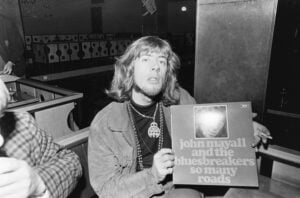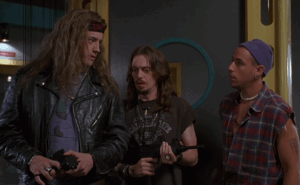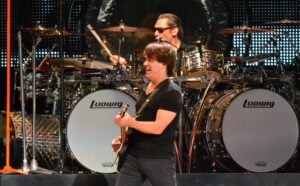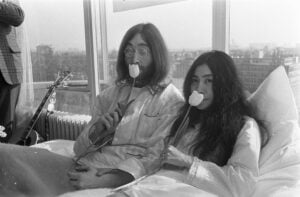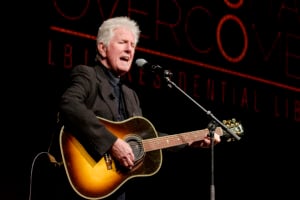10 Worst Albums From Legendary Classic Rock Bands
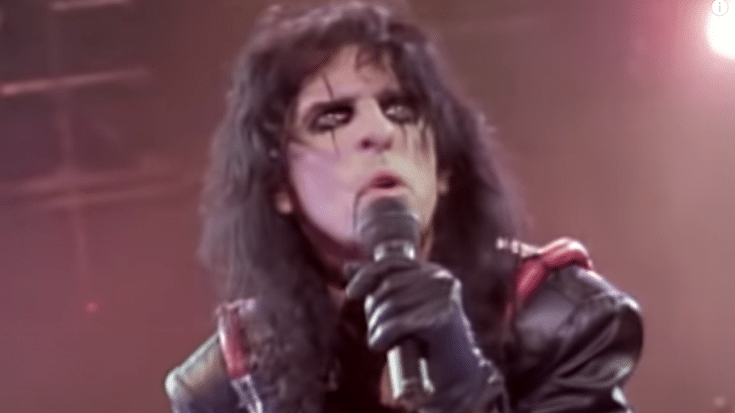
Youtube / Official Alice Cooper
A few guidelines help maintain fairness when selecting the worst albums from the top bands of the 1970s. We haven’t included solo projects by Ringo Starr or Keith Moon, and opinions on Lou Reed’s Metal Machine Music are still divided; some jurors think it’s terrible, while others think it’s brilliant.
It’s difficult to put together this list because, in reality, even the worst albums have their moments. Despite bands constantly touring, psychedelic trips, and record labels requiring new albums every few months, the 1970s didn’t produce many real disasters.
Prepare for an exploration through “the decade that taste forgot” by grabbing your Watneys Party Seven.
UFO – UFO 1 (Beacon, 1970)
As they say, “You’ve got to start somewhere,” but not all rock bands from the 1970s had a great first impression. Long before they became well-known because of German guitar virtuoso Michael Schenker, UFO had a clumsy debut with little elegance or focus. This early attempt, which was released long before their heyday in the late 1970s, was a combination of awkward recording, wobbly performances, and hippy garage fuzz. Due to poor execution and a lackluster guitar sound, even renditions of Bo Diddley, Eddie Cochran, and Harry Belafonte fell flat.
Coven – Coven (MGM, 1971)
Rock’s first overtly occult record was Coven’s 1969 debut, Witchcraft: Destroys Minds and Reaps Souls, which even garnered Charles Manson’s questionable approval. No label was willing to support such blatantly Satanic psychedelic content because of the instant blowback. By their second album, Coven had given up on its darker roots and delivered a corny blend of Jailhouse Rock cover songs, cheesy piano ballads, and MOR boogie. “The suits wanted safer, watered-down music—not a blonde woman screaming demon chants in the early 1970s,” singer Jinx Dawson stated in 2013.
The Doors – Full Circle (Elektra, 1972)
One can’t help but wonder what Jim Morrison could have done with some of the songs on the Doors’ first album following his tragic death, Other Voices (1971), which was released just three months after the death of the Lizard King and six months after the legendary L.A. A woman. Their second and last attempt to continue without him failed with their follow-up, Full Circle. With the trio dabbling with various styles and a dozen session musicians and backing singers attempting—and failing—to liven up its clichéd, clap-along tracks, the album feels disorganized and aimless.
Creedence Clearwater Revival – Mardi Gras (Fantasy, 1972)
“Mardi Gras” earned a scathing review from Jon Landau in Rolling Stone, who called it “the worst album I have ever heard from a major rock band.” While that might be an exaggeration—any record with “Sweet Hitch-Hiker” on it isn’t entirely hopeless—it’s hard to argue that this lackluster finale did justice to Creedence Clearwater Revival’s legacy. Following six incredible albums in just three years, John Fogerty’s creative well may have run dry, but letting bassist Stu Cook write and sing three songs was a misstep that highlighted the band’s unraveling.
Humble Pie – Street Rats (A&M, 1975)
Humble Pie was a shabby supergroup by 1975, barely surviving years of constant touring. While their label, A&M, pushed for an eighth Pie record, frontman Steve Marriott, who was powered by an ounce of cocaine every two days, was balancing plans for a solo album and a side project with bassist Greg Ridley. Due to the band’s disorganized concentration, which resulted in chaotic sessions, A&M had to intervene, finish the shaky recordings, and release them without the group’s consent. Not surprisingly, Humble Pie’s turbulent run came to an end with the haphazard attempt.
The Kinks – The Kinks Present A Soap Opera (RCA, 1975)
“It’s a period when I shouldn’t have been allowed to make records. I should have been locked up!” Ray Davies joked about his theatrical 70s phase, where every Kinks album revolved around a complex concept. Soap Opera, based on Ray’s TV screenplay about a rock star trading lives with an average suburbanite named Norman, was simpler than the Preservation albums but lacked memorable tracks. Dave Davies didn’t hold back, calling it “an exercise in Ray’s disappearing up his own arse,” capturing the era’s divisive reception of the band’s storytelling experiments.
Alice Cooper – Goes To Hell (Warner Bros, 1976)
Welcome To My Nightmare, Alice Cooper’s debut “solo album,” was a daring and revolutionary step for the shock rock icon. The gritty, rebellious edge of the Alice Cooper band was gone, replaced with family-friendly show tunes, drab funk, and worn-out MOR, but its sequel blew it so badly that Coop had to “go to hell to retrieve it.” With pianos, strings, and choirs, Bob Ezrin’s extravagant production accentuated the worst excesses of mainstream music in the mid-1970s. According to the rough theme of the CD, Alice, ironically, defeats the Devil by playing unmemorable songs.
Emerson, Lake & Palmer – Love Beach (Atlantic, 1978)
On this notorious low point of 70s rock, Greg Lake croons with breathtaking passion, “We can make love on Love Beach / Out of reach of the lion’s claws tonight.” ELP’s Bee Gees-inspired cover photo made it easy to find in secondhand shops. This album wasn’t a parody, but rather a sincere attempt to make the band’s progressive eccentricities into music that would sell. In a 2006 biography, Keith Emerson later described the record as “an embarrassment against everything I’ve worked for,” indicating that he never warmed up to it. The record was the once-audacious trio’s mistaken farewell.
Black Oak – I’d Rather Be Sailing (Capricorn, 1978)
The title alone signals a lack of enthusiasm, as frontman Jim “Dandy” Mangrum admitted in 1994, saying, “I’d rather be doing anything other than this album.” Even dropping “Arkansas” from the band’s name felt like a red flag. Once known as the most flamboyant and electrifying Southern rockers of the 70s, with Jim Dandy inspiring performers like David Lee Roth, Black Oak Arkansas fizzled out in 1978. While Van Halen roared onto the scene, BOA quietly bowed out with this uninspired MOR effort—a far cry from their fiery early days.
KISS – Peter Criss (Casablanca, 1978)
Released in 1978, KISS’s four solo albums were a mixed bag at best. Ace’s album was a hit, Paul’s was solid, and Gene’s missed the mark, but Peter Criss’s effort was a true disappointment. Stripped of his wild, untamed persona, the Catman’s album was more Ringo Starr than rock icon, delivering a collection of lifeless smooth-jazz/pop-soul tunes. Drawing from songs he’d written back in 1971 for his band Lips, the album was weighed down by dated arrangements, flat horns, and clunky keyboards. The LP’s failure was a blow, and by 1980, Peter was out of KISS. Coincidence?







